Massachusetts Gov. Charlie Baker talks new book, the ‘how’ of government, at Northeastern
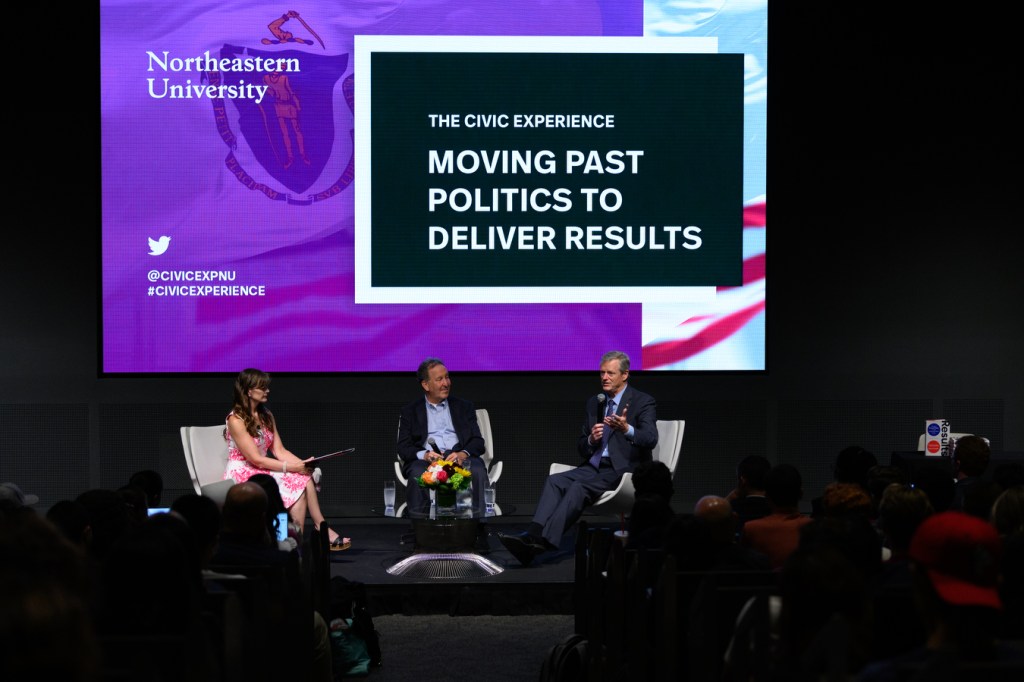
When it comes to how government and bureaucracy actually function—it’s true—most eyes tend to glaze over.
But it’s precisely how those largely invisible, day-to-day government processes are carried out that makes all the difference to communities governments serve—a topic that was the focus of a book written by Massachusetts Gov. Charlie Baker and Steve Kadish, Baker’s former chief of staff and former chief operating officer at Northeastern.
The book, titled “Results: Getting Beyond Politics to Get Important Work Done,” was the showpiece of a “civic experience” talk Wednesday evening held at Northeastern. Prior to the conversation, Baker met with Northeastern faculty members in a roundtable-style discussion meant to highlight the thinking that went into the book.
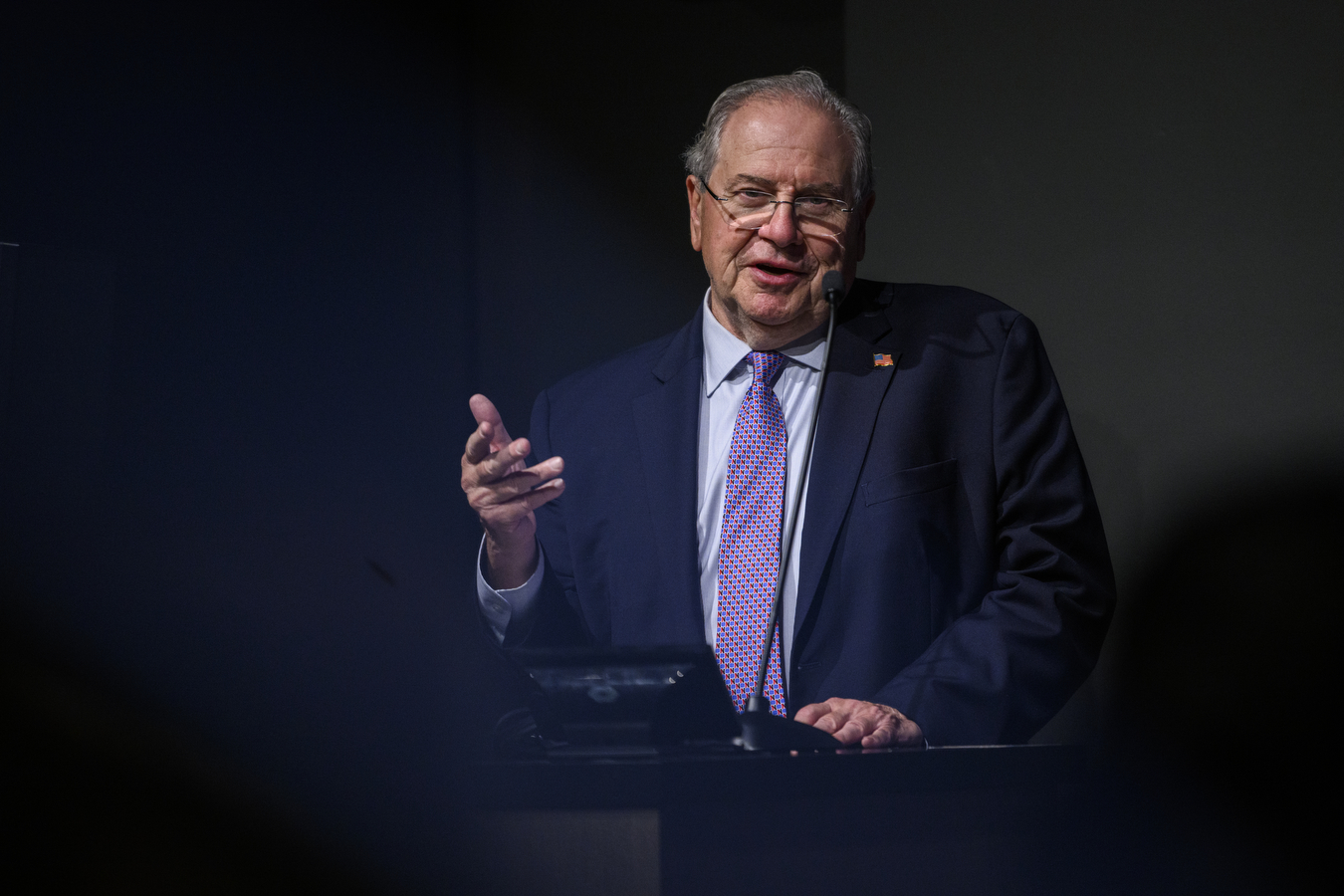
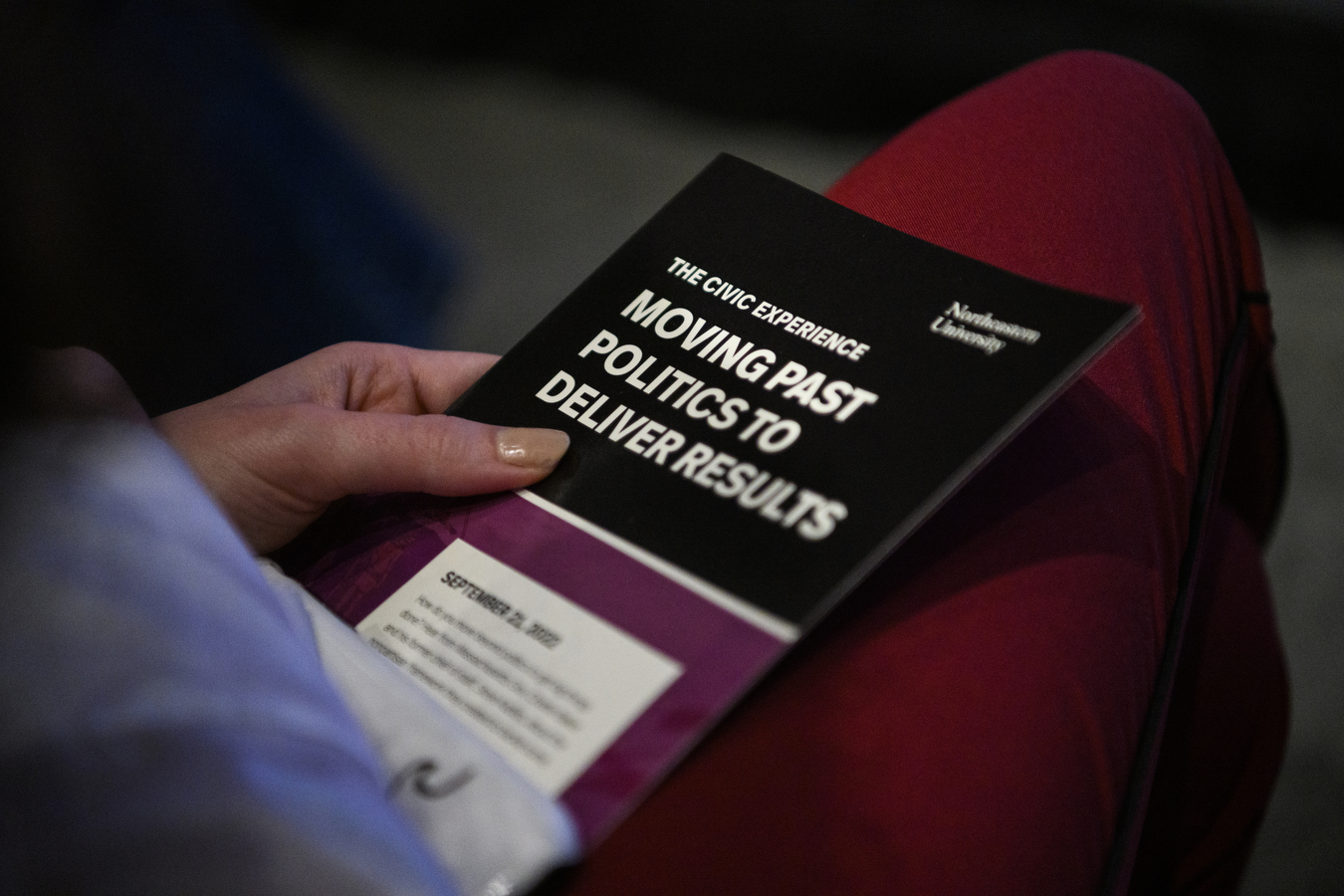
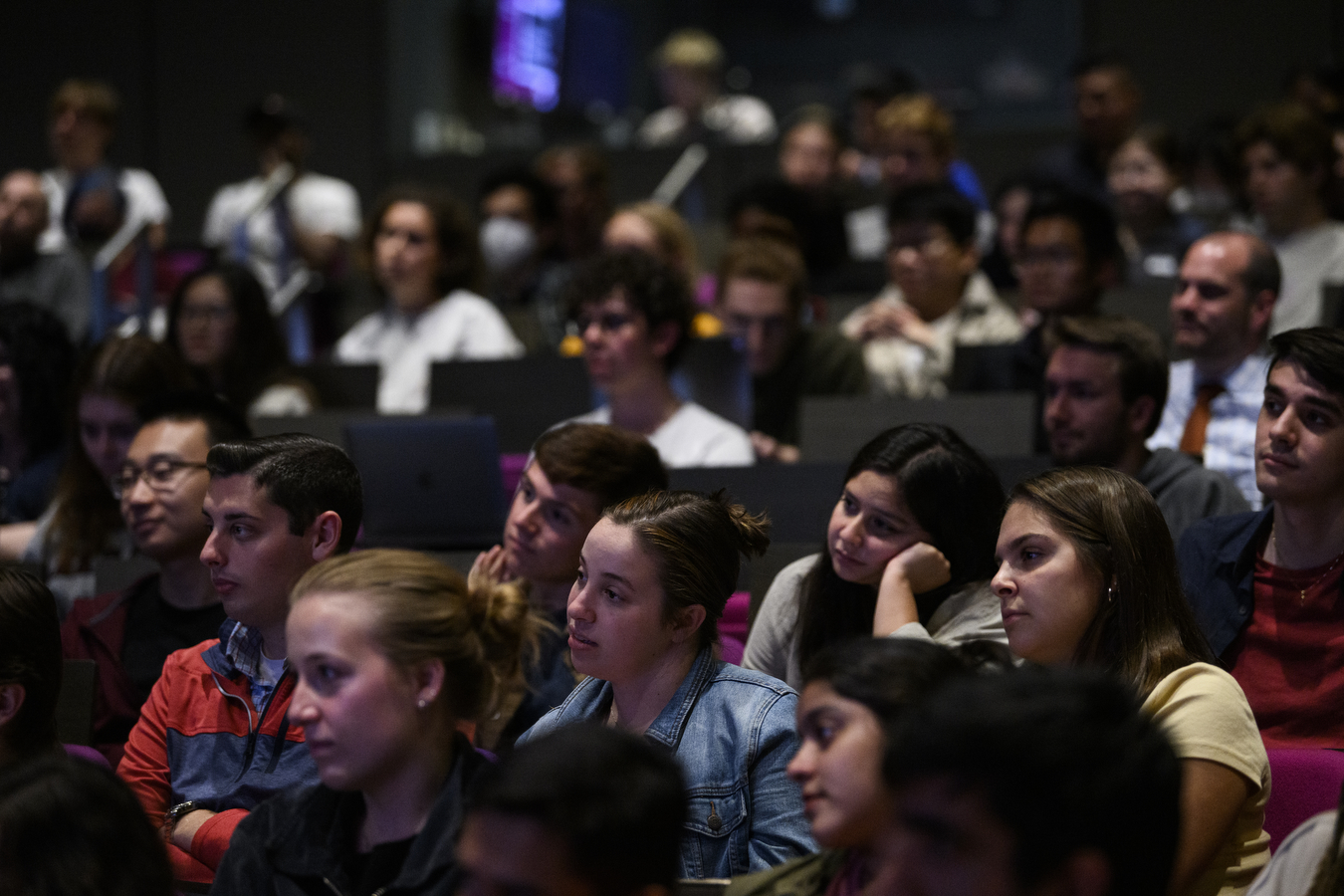
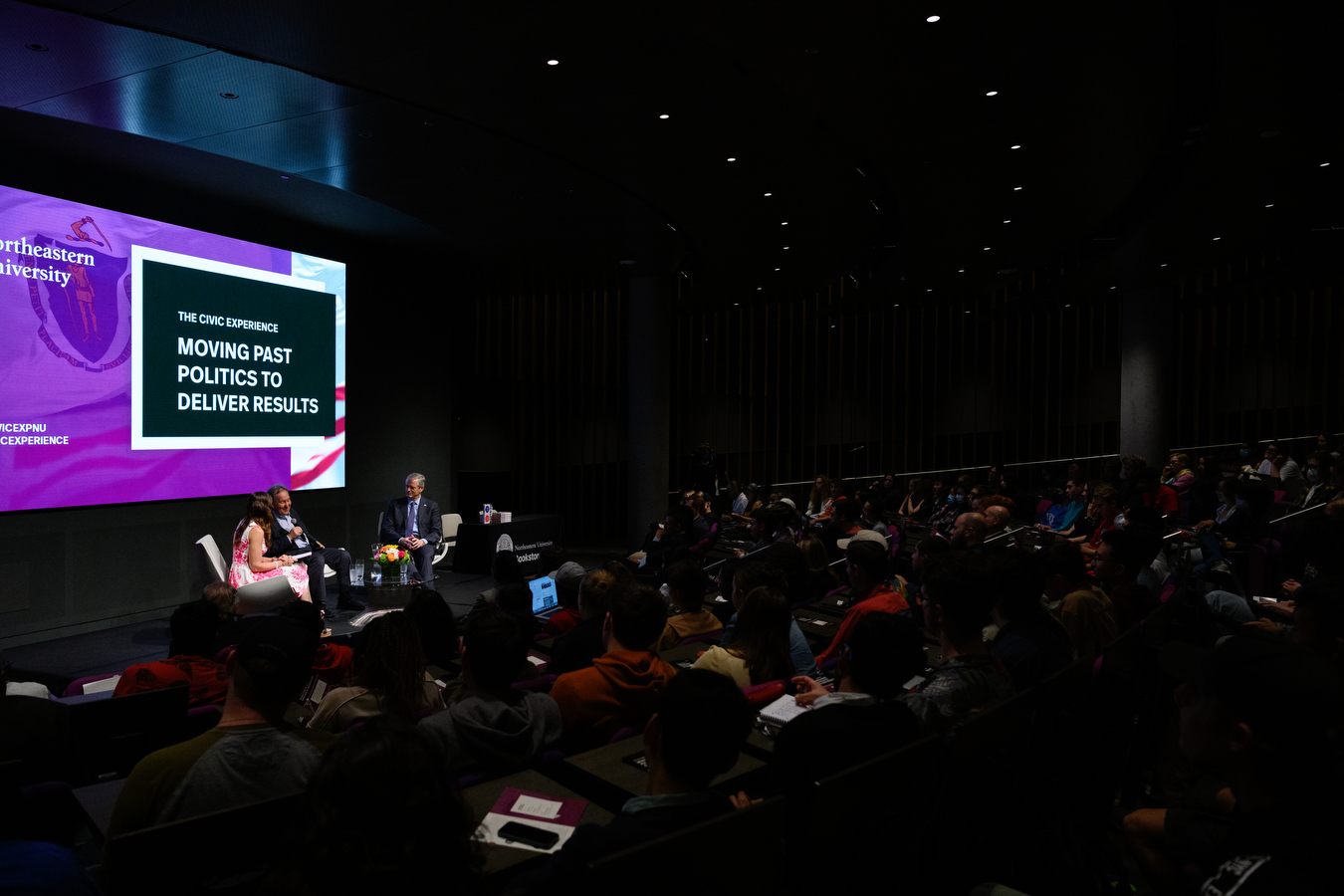
“It’s very aptly named in terms of what this government has done” during Baker’s tenure as governor, Robert DeLeo, former Massachusetts House speaker and University Fellow for Public Life at Northeastern, said.
DeLeo praised the book, which is essentially a manual for government and business leaders to turn to for results-oriented problem-solving. The work doubles as a textbook, replete with examples of real-world problems—and a process to tackle them—for students aspiring to work both in the public and private sectors.
“For us, the point behind this book is to say, ‘Good work does get done; here’s a process and a way of doing good work,’” Baker told an audience at the Interdisciplinary Science and Engineering Center.


Indeed, the book serves as more than just a guidebook for policymakers and public sector workers. Its practical wisdom—Baker and Kadish outline a series of steps for elucidating and then getting to work on problems—also extends to the private sector, to leaders and managers in large organizations navigating government bureaucracy.
And what the duo put together is both comprehensive and digestible, touching on everything from how governments big and small should manage budgeting and financial problems, to rolling out new policies, hiring and building out teams. There’s even a how-to for working with the media.
“We wanted to put something down in writing about the how [of government],” Baker said. “There are a lot of what and why books about government, but there aren’t very many books that try to describe the how.”
The reason? Baker and Kadish write that the how of government is less “fun,” less headline-grabbing; “it involves real budgets, real operating assumptions, real metrics, real people, and all the real complexity associated with trying to turn someone’s big or small idea into practical, sustainable reality,” they wrote.
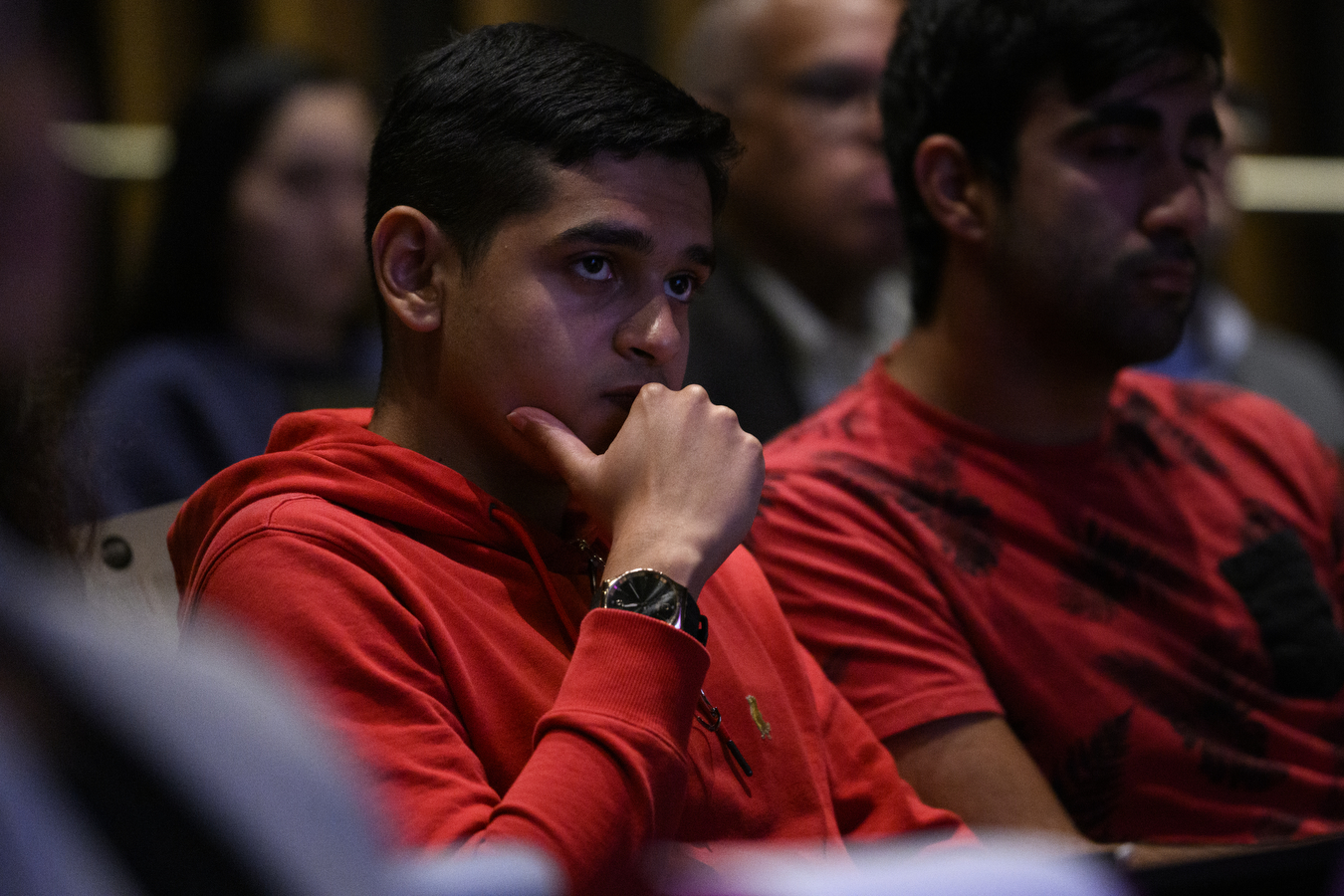
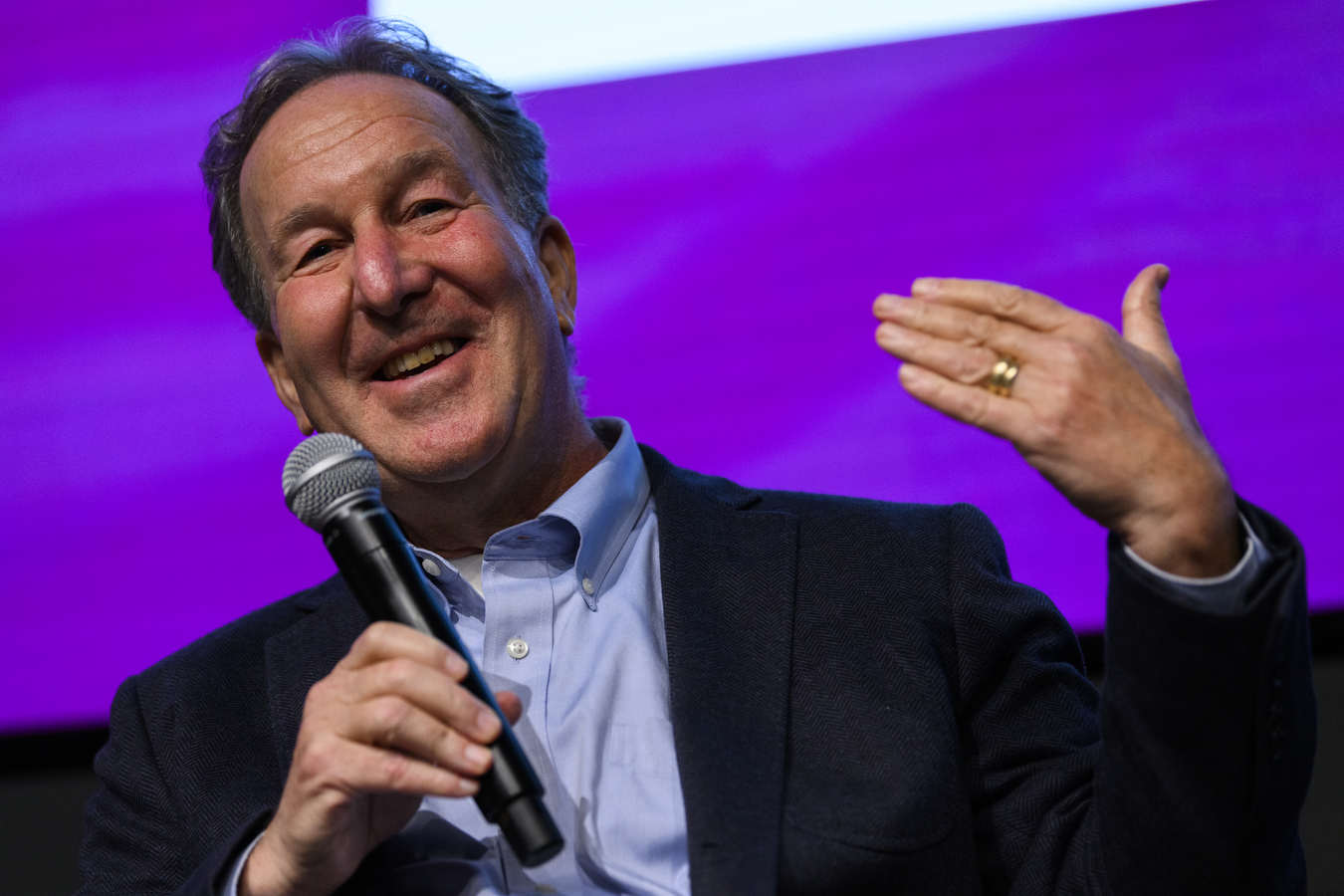
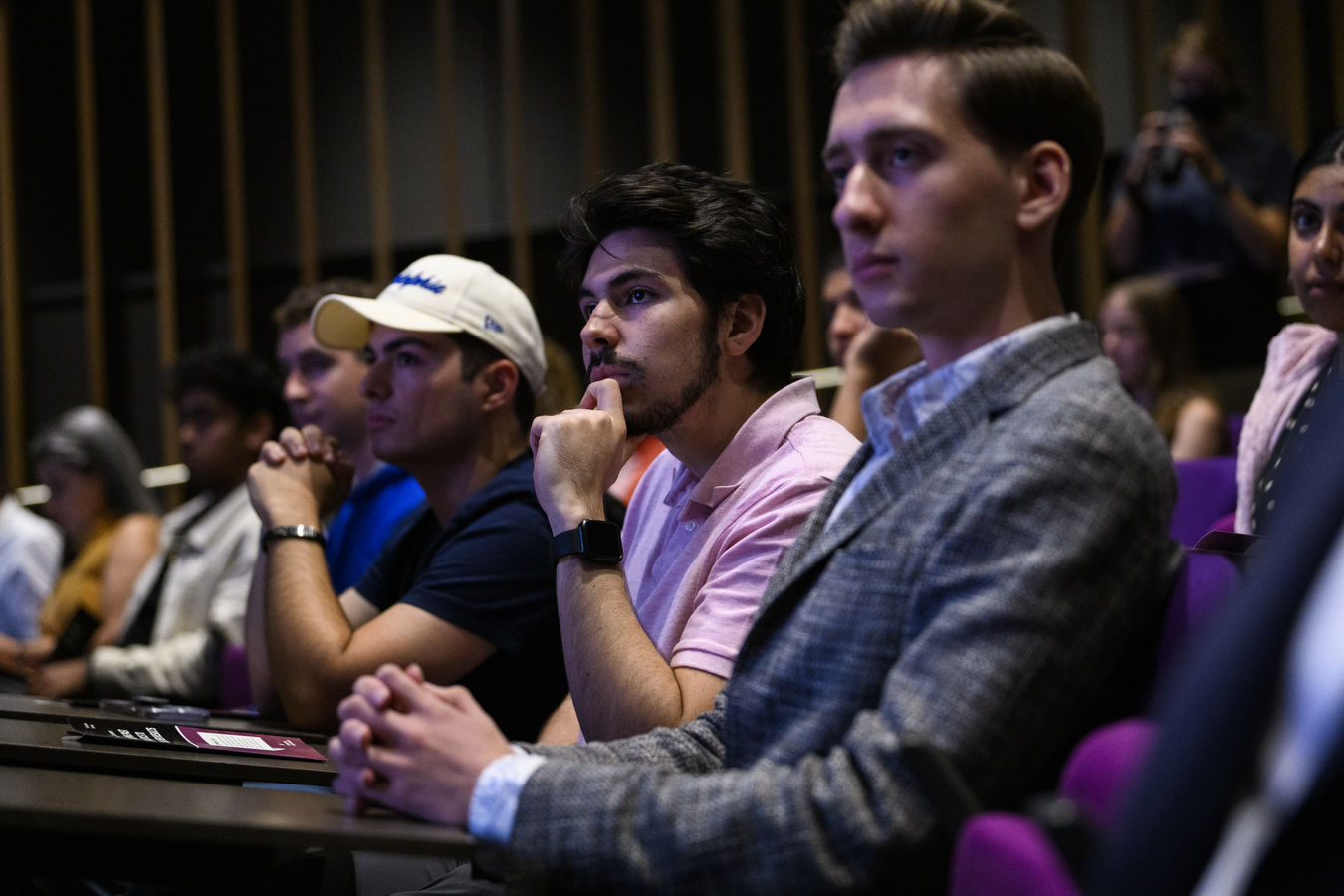
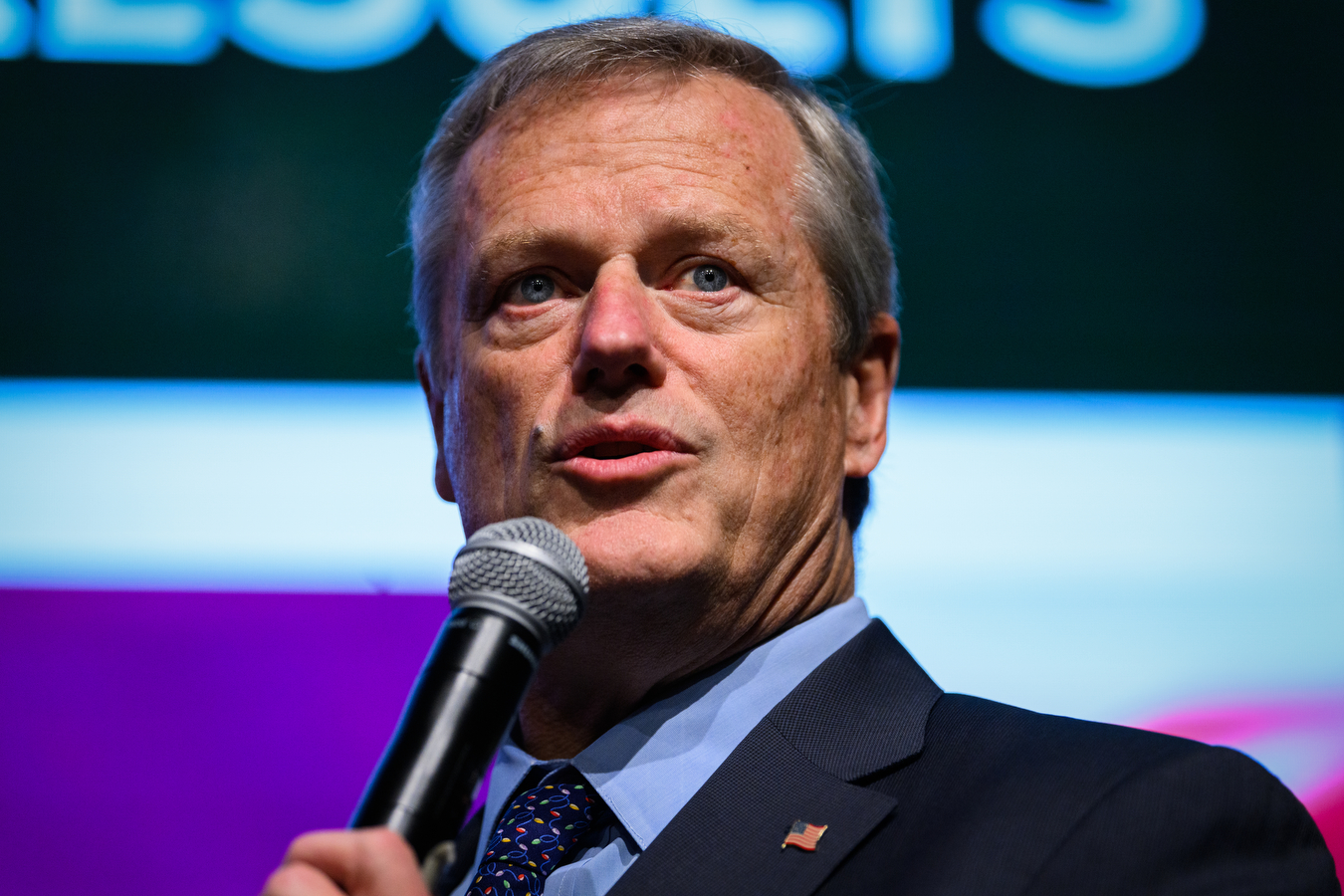
The pair break down the “results framework” into four elements: people are policy, follow the facts, focus on how, and push for results. After outlining the step-by-step process, Baker and Kadish draw on their extensive government experience to help illustrate these core principles in action.
Their case studies span everything from the ongoing reforms of the Massachusetts Department of Children and Families, to the MBTA and, yes, the COVID-19 pandemic and the state’s response to the unprecedented public health crisis in the early days, including the very creative procurement strategy that involved flying the New England Patriots team plane to China to retrieve high-demand N95 respirator masks.
“This is one of the first books … that actually talks about COVID, and what happened from the executive point of view,” Kadish said. “A lot of folks I’ve been speaking to are practitioners in state and local government here and around the country. As practitioners, they are really appreciative that, one, it’s a framework, and two, it gives them a way to talk about what some of them are doing some of.”
Alicia Modestino, associate professor of public policy and urban affairs and economics, who moderated the conversation, suggested that the results-focused approach resembles Northeastern’s experiential learning model.
“To us at Northeastern, that feels like experiential learning,” Modestino said. “That feels like life-long learning. You even say in the book, if you’re not listening, you’re not learning.”
In fact, just a few weeks ago, the provost approved a new “impact accelerator” that Modestino is leading called City to City (C2C): Finding Equitable Solutions to Local Policy Problems. Using a proven “think and do” model, C2C will work in partnership with city and state agencies across the global campus network to tackle long-standing policy challenges in areas such as such as crime, opioid addiction, housing affordability and workforce development, Modestino said.
Serving as Massachusetts’ governor since 2014, the evening was also an opportunity for Baker to reflect on his time in office, which is winding down ahead of the 2022 gubernatorial election set to take place this November featuring newcomers Maura Healey, a Democrat, and Geoff Diehl, a Republican.
“There’s a line in there that I attribute to my father which is that success is never final,” Baker said. “It’s not. Whatever it is, you’re going to end up coming up with issues and problems.”
For media inquiries, please contact media@northeastern.edu.
